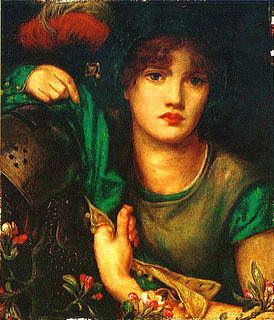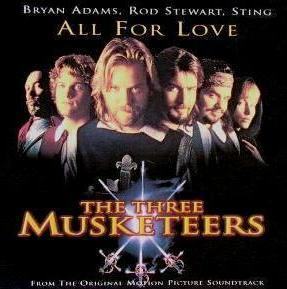Related Research Articles

In vocal jazz, scat singing is vocal improvisation with wordless vocables, nonsense syllables or without words at all. In scat singing, the singer improvises melodies and rhythms using the voice as an instrument rather than a speaking medium.

Sir Roderick David Stewart is a British rock and pop singer, songwriter and record producer. With his distinctive raspy singing voice, Stewart is one of the best-selling music artists of all time, having sold over 250 million records worldwide. He has had ten number-one albums and 31 top ten singles in the UK, six of which reached number one. Stewart has had 16 top ten singles in the US, with four reaching number one on the Billboard Hot 100. He was knighted in the 2016 Birthday Honours for services to music and charity.
"Stardust" is a popular song composed in 1927 by Hoagy Carmichael with lyrics added by Mitchell Parish in 1929. Carmichael recorded the song, originally titled "Star Dust", at the Gennett studio in Richmond, Indiana. The "song about a song about love", played in an idiosyncratic melody in medium tempo, became an American standard and is one of the most recorded songs of the 20th century with over 1,500 recordings. In 2004, Carmichael's 1927 recording of the song was one of 50 recordings chosen by the Library of Congress to be added to the National Recording Registry. The song was featured in the film "My Home In Umbria" (2003).

The "Battle Hymn of the Republic", also known as "Mine Eyes Have Seen the Glory" outside of the United States, is a popular American patriotic song by the abolitionist writer Julia Ward Howe.

The Supernaturals are a five piece guitar-based indie rock band from Glasgow, Scotland. Fronted by singer-songwriter James McColl, they signed to Parlophone in 1996, and had a string of singles which were taken from their three albums and four EPs. Other members included Mark Guthrie, Derek McManus, Gavin Crawford and Ken McAlpine. The band's best known songs were featured prominently in a series of television advertisements. In total they scored five Top 40 entries in the UK Singles Chart.

A cèilidh or céilí is a traditional Scottish or Irish social gathering. In its most basic form, it simply means a social visit. In contemporary usage, it usually involves dancing and playing Gaelic folk music, either at a house party or a larger concert at a social hall or other community gathering place.

"Greensleeves" is a traditional English folk song. A broadside ballad by the name "A Newe Northen Dittye of ye Ladye Greene Sleves" was registered by Richard Jones at the London Stationer's Company in September 1580, and the tune is found in several late-16th-century and early-17th-century sources, such as Ballet's MS Lute Book and Het Luitboek van Thysius, as well as various manuscripts preserved in the Seeley Historical Library in the University of Cambridge.

The Battle of Prestonpans, also known as the Battle of Gladsmuir, was fought on 21 September 1745, near Prestonpans, in East Lothian; it was the first significant engagement of the Jacobite rising of 1745, which is sometimes viewed as a subsidiary conflict of the War of the Austrian Succession.
"Men of Harlech" or "The March of the Men of Harlech" is a song and military march which is traditionally said to describe events during the seven-year siege of Harlech Castle between 1461 and 1468. Commanded by Constable Dafydd ap Ieuan, the garrison withstood the longest known siege in the history of the British Isles. The song has also been associated with the earlier, briefer siege of Harlech Castle about 1408, which pitted the forces of Owain Glyndŵr against the future Henry V of England.

The Queen's Royal Hussars (QRH) is the senior United Kingdom armoured regiment. It was formed on 1 September 1993 from the amalgamation of the Queen's Own Hussars and the Queen's Royal Irish Hussars. The regiment and its antecedents have been awarded 172 Battle Honours and eight Victoria Crosses. The regiment was based in Sennelager, Germany, until 2019 when it was relocated to Tidworth Camp, England. It is the armoured regiment for 20th Armoured Brigade.
"Garryowen", also known as "Garyowen", "Garry Owen" and "Gary Owens", is an Irish tune for a jig dance. It was selected as a marching tune for Australian, British, Canadian, and American military formations, including General George Armstrong Custer's 7th Cavalry Regiment and Australia's 2 Cav Regiment.

Nazrul Geeti or Nazrul Sangeet, literally "music of Nazrul", refers to the songs written and composed by Kazi Nazrul Islam. Nazrul Geeti incorporate revolutionary notions as well as more spiritual, philosophical and romantic themes. Nazrul wrote and composed nearly 4,000 songs, which are widely popular in Bangladesh and India. Some of the most notable Nazrul Geeti include Notuner Gaan, the national marching song of Bangladesh and O Mon Romzaner Oi Rozar Sheshe, an Islamic song on the festival of Eid-ul-Fitr.

"All for Love" is a song written by Bryan Adams, Robert John "Mutt" Lange, and Michael Kamen for the soundtrack The Three Musketeers: Original Motion Picture Soundtrack. It was performed by Bryan Adams, Rod Stewart, and Sting. The power ballad was released as a CD single in the United States on November 16, 1993. It was a worldwide hit, reaching number one across Europe, Australia and North America.
"The British Grenadiers" is a traditional marching song of British, Australian and Canadian military units whose badge of identification features a grenade, the tune of which dates from the 17th century. It is the Regimental Quick March of the Royal Artillery, Corps of Royal Engineers, the Honourable Artillery Company, Grenadier Guards 'The First Regiment of Foot Guards', and the Royal Regiment of Fusiliers. It is also an authorised march of the Royal Australian Artillery, The Royal Gibraltar Regiment, The Royal Regiment of Canadian Artillery, The Royal Regiment of Canada, The Princess Louise Fusiliers, and The 5th Canadian Mounted Rifles. The standard orchestration for the military band was approved in 1762, when the Royal Artillery Band became recognised officially, and for all other 'grenade' regiments in 1763, when the remaining unofficial bands gained official status.

"Daydream Believer" is a song composed by American songwriter John Stewart, shortly before he left the Kingston Trio. It was originally recorded by the Monkees, with Davy Jones singing the lead. The single reached No. 1 on the U.S. Billboard Hot 100 chart in December 1967, remaining there for four weeks, and peaked at No. 5 in the UK Singles Chart. It was the Monkees' last No. 1 hit in the U.S.
"The Lincolnshire Poacher" is a traditional English folk song associated with the county of Lincolnshire, and deals with the joys of poaching. It is considered to be the unofficial county anthem of Lincolnshire. It is catalogued as Roud Folk Song Index No. 299.

"Dandy" is a 1966 song by The Kinks, appearing on their album Face to Face.
The Bonnie House of Airlie is a traditional Scottish folk song of the seventeenth century, telling the tale of the raid by Archibald Campbell, Earl of Argyll, on Airlie Castle, the home of James Ogilvy, Earl of Airlie, in the summer of 1640. A broadsheet version first appeared in 1790 and it received formal publication as number 199 in Francis Child's collection The English and Scottish Popular Ballads of 1882.

"Marching Song of the First Arkansas Colored Regiment" is one of the few Civil War-era songs inspired by the lyrical structure of "The Battle Hymn of the Republic" and the tune of "John Brown's Body" that is still performed and recorded today. The "Marching Song" has been described as "a powerful early statement of black pride, militancy, and desire for full equality, revealing the aspirations of black soldiers for Reconstruction as well as anticipating the spirit of the civil rights movement of the 1960s." The song's lyrics are attributed to the regiment's white officer, Captain Lindley Miller. An almost identical song, "The Valiant Soldiers," is attributed to Sojourner Truth in post-Civil War editions of her Narrative. Recent scholarship supports Miller as the original author, or at least compiler, of the song.

During the American Civil War, music played a prominent role on both sides of the conflict: Union and Confederate. On the American Civil War battlefield, different instruments including bugles, drums, and fifes were played to issue marching orders or sometimes simply to boost the morale of one's fellow soldiers. Singing was also employed not only as a recreational activity but as a release from the inevitable tensions that come with fighting in a war. In camp, music was a diversion away from the bloodshed, helping the soldiers deal with homesickness and boredom. Soldiers of both sides often engaged in recreation with musical instruments, and when the opposing armies were near each other, sometimes the bands from both sides of the conflict played against each other on the night before a battle.
References
| | This song-related article is a stub. You can help Wikipedia by expanding it. |